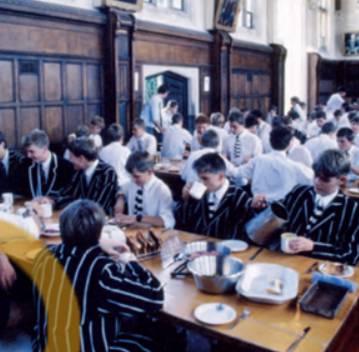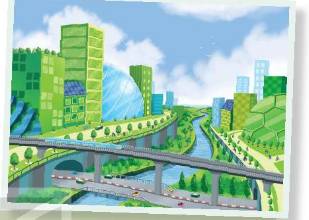Hãy nhập câu hỏi của bạn vào đây, nếu là tài khoản VIP, bạn sẽ được ưu tiên trả lời.


I agree with the writer's general opinion because of four reasons:
- Vocational courses are more focused on specific job skills, which may limit a student's opportunities if they change their career goals later on.
- Traditional courses often offer a broader education and more opportunities to explore different subjects, which can be valuable for personal growth and future career prospects.
- It can be difficult for students to know exactly what they want to do when they are still in school, so choosing a vocational course may be too restrictive.
- Pursuing a course that really interests you can be more fulfilling and motivating than focusing solely on job prospects.

If I had been on a trip like this, I would have enjoyed it. Traveling the world on a yacht for sixteen years would be an exciting and adventurous experience, with the opportunity to explore different cultures, landscapes, and wildlife. Swimming with seals near the Galápagos Islands would be a memorable experience and visiting 56 countries would be an incredible achievement

- The picture shows a school cafeteria or eating room, where many students are gathered, all wearing their school uniforms. Some students are drinking milk from cups, while there is bread on the table. The room appears to be quite crowded with many students present. It can be assumed that it is a busy place, with students chatting and eating together.
(Bức tranh cho thấy một nhà ăn hoặc phòng ăn của trường, nơi có nhiều học sinh đang tụ tập, tất cả đều mặc đồng phục học sinh. Một số học sinh đang uống sữa từ cốc trong khi có bánh mì trên bàn. Căn phòng có vẻ khá đông đúc với nhiều sinh viên có mặt. Có thể cho rằng đó là một nơi náo nhiệt với các sinh viên trò chuyện và ăn uống cùng nhau.)
- I think they are having breakfast at a 'public school' in England because they’re all wearing uniform and eating bread and drinking milk. They are popular things for breakfast there.
(Tôi nghĩ họ đang ăn sáng tại một 'trường công lập' ở Anh vì tất cả họ đều mặc đồng phục và ăn bánh mì và uống sữa. Chúng là những thứ phổ biến cho bữa sáng ở đó.)
- At my school, we have a more modern-looking cafeteria with individual tables and chairs. The food is served from a counter and students can choose from a variety of options.
(Ở trường tôi, chúng tôi có một nhà ăn trông hiện đại hơn với bàn ghế cá nhân. Thức ăn được phục vụ từ quầy và học sinh có thể chọn từ nhiều lựa chọn khác nhau.)
- If I can choose, I wouldn’t like to eat as in the picture because I like the feeling of being alone when I am eating and I can choose to eat any food I want at the canteen.
(Nếu được chọn, tôi sẽ không thích ăn như trong hình vì tôi thích cảm giác một mình khi đang ăn và tôi có thể chọn ăn bất kỳ món nào mình muốn tại căng tin.)

Yes, I would like to participate in the ASEAN School Tour Programme.
Participating in the ASEAN School Tour Programme could be a great opportunity for students to learn about ASEAN and its member countries, as well as to promote cultural exchanges and understanding. It could also be a chance for students to meet and interact with peers from different countries and backgrounds, which could broaden their perspectives and help them develop important interpersonal skills.
On the other hand, some students may not be interested in participating in the programme due to various reasons such as financial constraints, lack of time, or lack of interest in the topic. Additionally, some students may prefer other types of cultural exchange programmes or educational activities that suit their personal interests and learning styles better.

1.
Future cities are likely to be more technologically advanced and densely populated than they are today.
(Các thành phố trong tương lai có thể sẽ có công nghệ tiên tiến hơn và đông dân cư hơn so với hiện nay.)
They may also be more sustainable, with green spaces and renewable energy sources.
(Chúng cũng có thể bền vững hơn, với không gian xanh và các nguồn năng lượng có thể tái tạo.)
There may be a greater focus on public transportation and walkability, rather than car-centric design.
(Có thể có sự tập trung nhiều hơn vào giao thông công cộng và khả năng đi bộ hơn là thiết kế tập trung vào ô tô.)
2.
Yes, I think future cities will be smarter and more sustainable.
(Vâng, tôi nghĩ các thành phố trong tương lai sẽ thông minh hơn và bền vững hơn.)
Technology will play a key role in optimizing resource usage, reducing waste, and improving efficiency.
(Công nghệ sẽ đóng một vai trò quan trọng trong việc tối ưu hóa việc sử dụng tài nguyên, giảm lãng phí và nâng cao hiệu quả.)
There is also a growing awareness of the need to reduce our impact on the environment, and sustainability will be a key consideration in urban planning and development.
(Ngoài ra còn có nhận thức ngày càng tăng về nhu cầu giảm tác động của chúng ta đối với môi trường và tính bền vững sẽ là yếu tố chính được xem xét trong quy hoạch và phát triển đô thị.)

